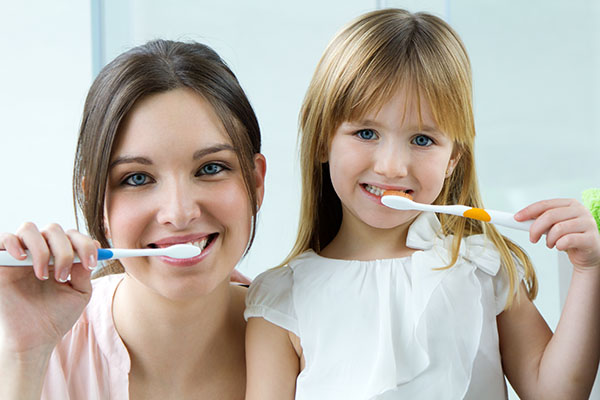3 Tips From a Preventive Dentist to Protect Your Natural Teeth

Natural teeth serve a very important function, and a preventive dentist can ensure they stay protected. They are the first line of the digestive system as they are used to grind down food into smaller bits that can be easily swallowed. Teeth also help in speech and communication. They are necessary to pronounce certain words, like those that contain the letter "T", and they are also used to communicate non-verbal messages, like how friendly a person is.
Natural teeth are the strongest part of the body. They are even stronger than a person's bones. However, teeth are also exposed to more things that can damage them than other parts of a person's body. For example, when a person eats, their teeth have to withstand significant forces as they grind down on food. Teeth are also exposed to corrosive acids that are found in certain foods, like citrus fruits and acids that are manufactured by oral bacteria.
For many people, the end result of this constant bombardment is the eventual loss of some of their natural teeth. Fortunately, all of that can be avoided. A person can increase the odds of their teeth lasting a lifetime by taking good care of them.
How to protect natural teeth
1. Practice good oral hygiene
The best foundation for healthy teeth is good oral hygiene. Oral hygiene helps to reduce the bacteria count in the mouth and it removes things that can damage teeth like plaque, food particles and acids. These things tend to be most harmful to teeth when they are left on them for extended periods.
- Good oral hygiene starts with brushing teeth at least two times every day. One of those times should be in the morning before or after breakfast, while the second brushing session should be right before going to bed
- Saliva serves as a natural cleaner for teeth, and its production is reduced while a person sleeps. Combine that with the fact food particles and bacteria have had all day to accumulate on the teeth and one gets a recipe for tooth decay
- Flossing is also a major aspect of good oral hygiene. The bristles of a toothbrush cannot reach the tight spaces between a person's teeth so floss is needed to remove plaque and food particles from these spaces
- Patients should consider adding a quality antibacterial mouthwash to their oral hygiene routine. This helps to clean the places even floss cannot reach and kill bacteria
2. Eat wisely
As was mentioned earlier, there are many foods and beverages that can damage a person's teeth. Foods that contain lots of sugar should be avoided as well as those that are acidic in nature. When these types of foods are eaten, the mouth should be rinsed with water afterward.
3. Visit a preventive dentist biannually
Visiting a preventive dentist twice a year goes a long way when it comes to protecting natural teeth. Tartar is removed from teeth surfaces and an oral examination is performed. This gives the dentist a chance to detect any developing issues before significant damage is done to the person's teeth.
Take good care of your teeth and the odds of you ever losing them during the course of your life is significantly reduced. Talk to a dentist to learn more about oral care.
Get started!
The sooner you start, the better your chances of preventing poor oral health! Contact a preventive dentist for more information about how to best protect your natural teeth.
Request an appointment here: https://www.greenedentalassociates.com or call Greene Dental Associates at (937) 426-2400 for an appointment in our Fairborn office.
Check out what others are saying about our dental services on Yelp: Preventative Dental Care.
Recent Posts
Preventive dentistry goes beyond undergoing dental checkups and cleanings twice a year. Read on to learn how preventive dentistry can protect against various oral health issues. You ensure a lifetime of good oral health and ultimately your general health if you keep those regular checkups. Preventive dental care checkups help you stay proactive in many…
Preventative dentistry involves you keeping your teeth and gums healthy by taking actions that will protect against dental problems like tooth decay, gum disease, and enamel loss. Tooth decay and gum disease are two of the most common dental issues that people seek care for, yet both are preventable.Things like daily oral hygiene and teeth…
Dentists have long recognized an oral health connection to overall health. The body’s systems are interrelated and affect one another. Long-term dental problems impact the immune system and other metabolic functions. It is the view of the American Dental Association that infections often enter the body through the mouth.A long-term infection in the gum taxes…
Preventive dentistry centers around a few core values: Practice good daily oral hygiene, never skip a dental cleaning and avoid sugar. Steering clear of sugary food and drinks is one of the pillars of dentistry.Read on to discover the seven things you need to know about the connection between sugar and tooth health.The mouth is…


